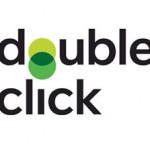 New York — Come what may, Google is strongly determined on digitizing the world’s books, but that is not it, the search giant is also thoughtful that sometimes you just want to turn the pages, and any one of the more than 2 million books old enough to fall out of copyright into the public domain can now be printed onto paper as well.
New York — Come what may, Google is strongly determined on digitizing the world’s books, but that is not it, the search giant is also thoughtful that sometimes you just want to turn the pages, and any one of the more than 2 million books old enough to fall out of copyright into the public domain can now be printed onto paper as well.
Since the past seven years, Google has digitized millions of dust-covered books from deep in the stacks of the nation’s leading university libraries and turned them into search-able documents available anywhere in the world through its search box.
Also the search engine titan is intensifying its PR offensive to convince consumers of the benefits wrought by its broader book scanning project.
And now Google Book Search, in association with On Demand Books, makers of the Espresso Book Machine, is empowering readers turn those digital copies back into paper copies, individually printed by bookstores around the world.
The Espresso Book Machine can print a 300-page book in four minutes, complete with a cover and a bound edge. It ranges in price from $75,000 to $97,000, depending on the configuration, and is found mostly at universities, libraries, and institutions around the globe.

The machine has been around for a while, earning a “Best Invention of the Year” award from Time Magazine in 2007. And the concept of using smaller on-demand printers is also old: Barnes and Noble was playing around with the idea 10 years ago, and publishers have long wanted a system that would allow them to match book supply and book demand more closely.
The Espresso Book Machine, which cranks out a 300 page gray-scale book with a color cover in about 4 minutes, at a cost to the bookstore of about $3 for materials. The machine prints the pages, binds them together perfectly, and then cuts the book to size and then dumps a book out, literally hot off the press, with a satisfying clunk. (The company says a machine can print about 60,000 books a year.)

This indicates that you can stop into the Northshire Bookstore in Manchester, Vermont, and for less than $10, custom-order your own copy of Dame Curtsey’s Book of Candy Making, the third edition of which was published in 1920 and which can only be found online for $47.00 used.
Dane Neller, On Demand Books CEO, says the announcement flips book distribution on its head.
“We believe this is a revolution,” Neller said. “Content retrieval is now centralized and production is decentralized.”
Neller said the deal was clearly about the long tail of books, a reference to Wired magazine’s Editor-in-Chief Chris Anderson’s theory that hits become less important when distribution costs drop. One of the main benefits, according to Neller, is letting local book stores compete with Amazon.com by reducing their need to have expensive inventory.
There is a certain irony to that, too, according to Google spokeswoman Jennie Johnson, since the bookstore is right next to Harvard’s library, one of the libraries that partnered with Google to turn its millions of books into an online library of the future.
“Most people cannot get into the Harvard Library, but you can print their books next door,” Johnson said.
“We think people should be able to find and read these books,” Johnson said. “We do not care how people end up reading them.”


